Nigeria is prone to seasonal disease outbreaks and in the last few years, a series of outbreaks including monkeypox, measles, Lassa fever, yellow fever, cerebrospinal meningitis and cholera have threatened the nation’s public health security. In 2020, while responding to COVID-19, Nigeria was at the same time tackling what was reported as the largest recorded outbreak of Lassa fever in the country. Today, amid efforts to contain the third wave of the COVID-19 pandemic, the nation is also dealing with an increase in cholera cases.
Cholera is one of those endemic seasonal diseases which occur annually, mostly during the rainy season, due to poor sanitation and overcrowding. In 2010, the Federal Ministry of Health reported 37,289 cases and 1,434 deaths between January and October, while a total of 22,797 cases with 728 deaths were recorded in 2011. In 2018, the Nigeria Centre for Disease Control (NCDC) reported 42,466 suspected cases and 830 deaths from 20 out of 36 States, from January to October. The latest NCDC weekly epidemiology report shows that as of 8th August 2021, a total of 37,819 suspected cases including 1,178 deaths have been reported from 23 states and the FCT. To put it in context, that is about half of all COVID-19 related deaths in Nigeria happening in just 7 months.
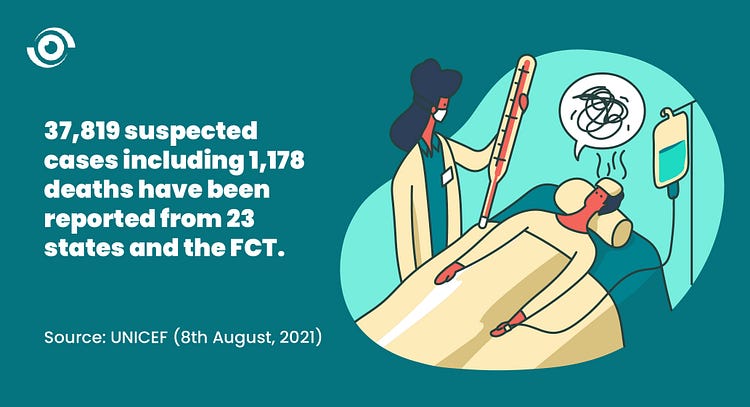
The Fight Against Cholera
Since the outbreak began, the NCDC has been coordinating the response through the National Multi-sectoral Emergency Operations Center (EOC) hosted at the NCDC, in collaboration with the Federal Ministry of Water Resources (FMWR), National Primary Healthcare Development Agency (NPHCDA) and partners.
According to a statement released by the NCDC, the National Cholera EOC has led the deployment of Rapid Response Teams to support the most affected states -– Benue, Kano, Kaduna, Zamfara, Bauchi and Plateau States. Additionally, NCDC and its partners have provided states with commodities for case management and laboratory diagnosis, materials for risk communications, response guidelines, etc.
But none of these medical interventions will solve the underlying issues leading to cholera outbreaks. Cholera is a water-borne disease, and the risk of transmission is higher where there is poor sanitation and unavailability of clean water supply. Practices such as poor refuse disposal and open defecation contaminate water used for drinking and personal use. These lead to the spread of water-borne diseases such as cholera. Without proper water, sanitation, and hygiene (WASH), Nigeria remains at risk.
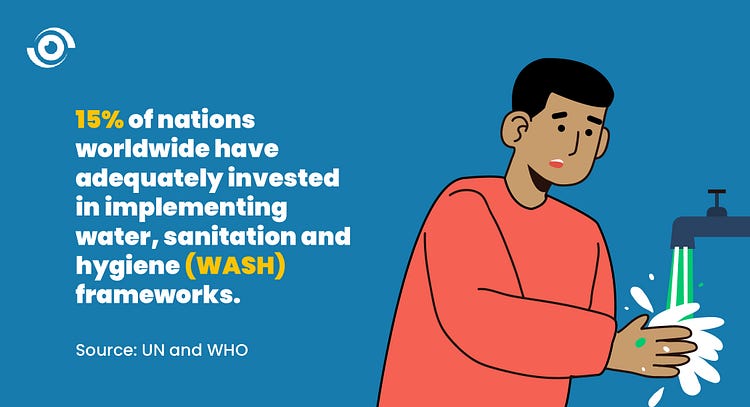
The long-term solution for cholera control lies in access to safe drinking water and maintenance of proper sanitation and hygiene. It is important for state governments to prioritise action for solutions that ensure access to and use of safe water, basic sanitation and good hygiene practices in communities.
A joint statement by Henrietta Fore, Executive Director of UNICEF, and Dr. Tedros Adhanom Ghebreyesus, Director-General of the World Health Organisation, revealed that “Many of those who lack access to basic handwashing live in overcrowded, desperately poor conditions. Even before the pandemic, children and families faced barriers to accessing water, sanitation and hygiene services”.
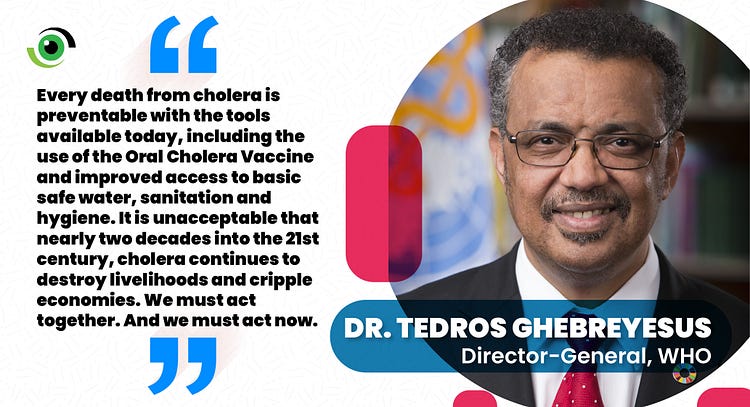
In Nigeria, the use of contaminated drinking water and poor sanitary conditions result in increased vulnerability to water-borne diseases. Only 26.5 per cent of the population have access to improved drinking water sources and sanitation facilities. This means that more than 70 million people are without access to improved sanitation and more than 45 million people practise open defecation in the country. Findings from a report published by the United Nations and WHO showed that under 15% of nations worldwide have adequately invested in implementing WASH frameworks.
Improving Access to WASH
To manage and possibly reduce yearly Cholera outbreaks in Nigeria, there must be an improvement in access to clean water, proper sanitation and hygiene in the country. State and local governments must focus on ensuring that WASH services are adequate in both the urban and rural communities. This means that investments in WASH services must be made and systems for effective implementation must be created and evenly distributed.
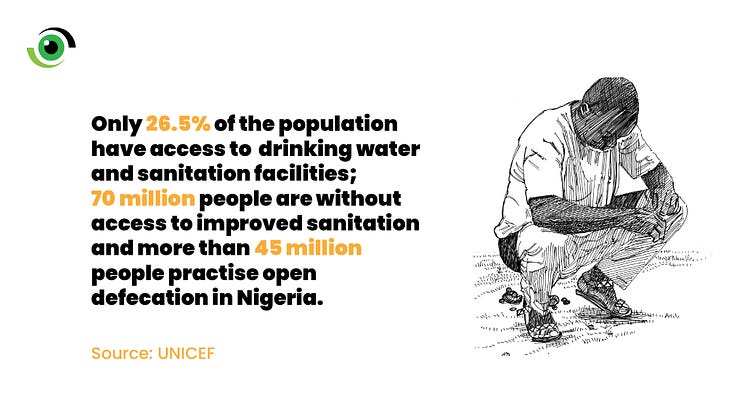
Dr Chikwe Ihekweazu, Director-General, Nigeria Centre for Disease Control, in an interview with The PUNCH Newspaper said, “We advocate what we call WASH; that is, water, sanitation and hygiene. Cholera breeds in dirty environments where people do not have access to clean water. We hope that state governments will work toward this. Right now, we are dealing with a pandemic; we will not want a situation whereby we will have to deal with multiple epidemics on our hands.”
Presently, cholera cases have been reported in 23 states and the FCT. As we continue to advocate for a permanent solution for the yearly outbreak, what can we do in the interim to protect ourselves and our loved ones? Here’s what the NCDC advices:
- Ensure that water is boiled and stored in a clean and safe container before drinking.
- Practice good personal hygiene by washing your hands frequently with soap under clean running water. Use alcohol-based hand sanitiser if soap and clean water are not available.
- Ensure that food is well cooked before consumption. Avoid raw food such as fruits and vegetables, except you have washed them in safe water or peeled them yourself.
- Avoid open defecation, indiscriminate refuse dumping and ensure proper disposal of waste and frequent clearing of sewage.
- If you experience sudden watery diarrhoea, please do not self-medicate, visit a health care facility immediately and take all sick persons with suspicious symptoms to a health care facility immediately.
- Healthcare workers are advised to always practice standard precautions: i.e., wearing gloves while handling patients or providing care to an ill patient/relative.


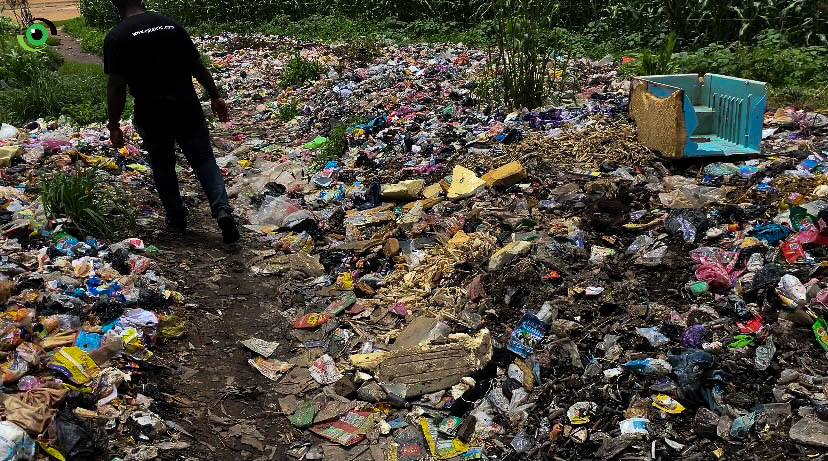
Nigeria still has a long way to go when it comes to sanitation, hopefully we improve because it’s extremely important.